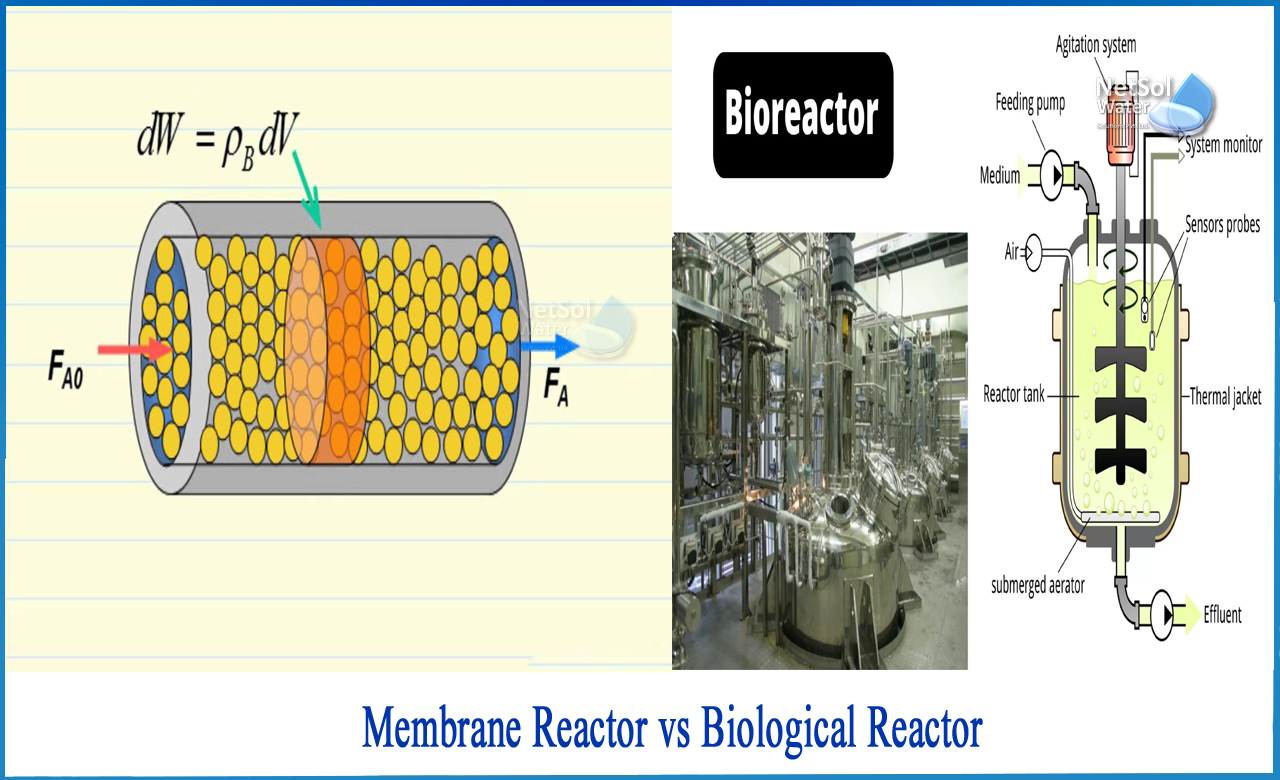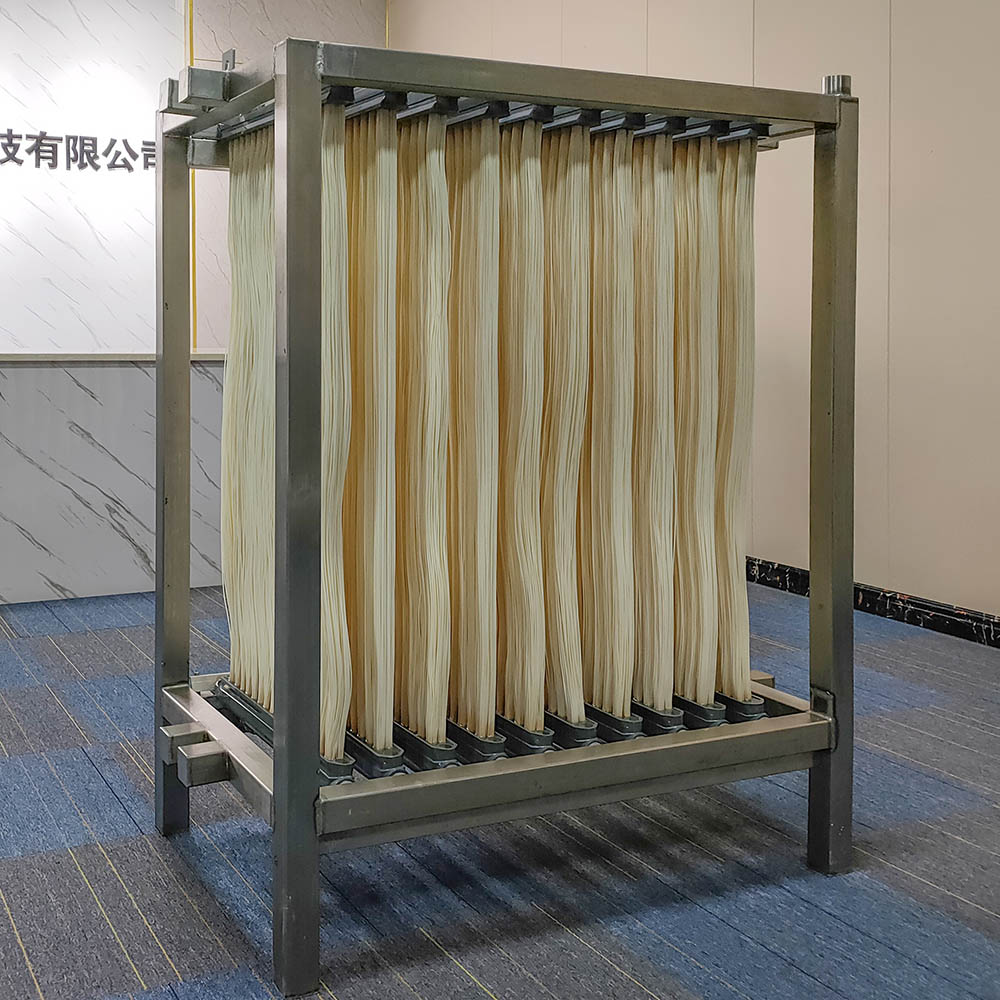How Membrane Bioreactor Contributes to the Reduction of Energy Consumption in Water Treatment
How Membrane Bioreactor Contributes to the Reduction of Energy Consumption in Water Treatment
Blog Article
The Benefits of Membrane Bioreactors in Sustainable Wastewater Administration
Membrane layer bioreactors (MBRs) represent a pivotal improvement in lasting wastewater management, properly combining organic therapy with sophisticated membrane filtering innovation. This assimilation not only enhances effluent high quality by effectively eliminating pollutants but likewise opens avenues for water reuse in various applications, hence attending to the pushing requirement for resource conservation. The small style of MBRs contributes to significant decreases in ecological effect and operational costs. As the need for lasting options escalates, checking out the complex benefits of MBRs might expose unforeseen ramifications for the future of wastewater treatment systems.
Review of Membrane Layer Bioreactors
Membrane bioreactors (MBRs) stand for a considerable development in wastewater therapy innovation, incorporating biological destruction with membrane filtering to improve the performance of the treatment procedure. This innovative system incorporates the advantages of standard activated sludge processes with membrane technology, enabling for improved solid-liquid separation. MBRs make use of semi-permeable membranes to separate cured water from biomass, resulting in high-grade effluent that can be reused or safely discharged into the setting.
The functional design of MBRs typically includes a bioreactor where microbes damage down natural issue, followed by a membrane device that filterings system the mixed liquor. This setup not just lessens the footprint of the therapy facility however additionally enables higher biomass concentrations and lowered hydraulic retention times. MBRs are qualified of dealing with a wider range of contaminants, including virus and nutrients, making them ideal for different applications, from community wastewater treatment to commercial effluent handling.
The assimilation of MBRs into wastewater management systems is a sign of a growing trend towards lasting and reliable techniques in ecological design. Their capacity to generate top quality effluent while lessening area needs placements MBR modern technology as a principal in contemporary wastewater therapy options.
Improved Effluent High Quality

The membrane filtering process acts as a physical obstacle, making it possible for the retention of microbes and particle issue, which adds to a clearer and cleaner effluent (Membrane Bioreactor). MBRs run at higher biomass concentrations than conventional turned on sludge systems, promoting more effective biodegradation of contaminants. This results in a reduction in biochemical oxygen demand (BOD) and total put on hold solids (TSS) levels in the final effluent
In addition, MBRs show superb efficiency in treating difficult wastewater compositions, such as commercial effluents and wastewater with high nutrient loads. As a result, the effluent created is commonly of higher high quality, enabling even more adaptable disposal choices and lowered ecological effect. Eventually, the enhanced effluent quality attained with MBR modern technology emphasizes its vital duty beforehand lasting wastewater administration methods.
Water Reuse Opportunities
The top quality effluent generated by membrane bioreactors (MBRs) opens up substantial opportunities for water reuse in various applications. MBRs effectively remove contaminants, consisting of pathogens, put on hold solids, and raw material, causing cured water that satisfies or goes beyond regulatory criteria for reuse. This quality allows for the application of water reusing campaigns throughout varied industries.
One popular application remains in farming, where dealt with wastewater can be used for irrigation, advertising sustainable farming practices while preserving fresh water resources. In addition, MBR-treated effluent can be used for commercial procedures such as air conditioning, cleansing, and as a process water resource, considerably reducing the demand for drinkable water in these operations.
In urban environments, MBRs facilitate the usage of redeemed water for landscape irrigation, bathroom flushing, and various other non-potable uses, adding to the total strength of water system systems. Moreover, the assimilation of MBR technology in decentralized systems help in handling local water demands, especially in water-scarce areas.
Minimized Environmental Impact
How can the fostering of membrane layer bioreactors (MBRs) contribute to a reduced ecological impact in wastewater management? MBRs substantially boost the treatment effectiveness of wastewater while decreasing eco-friendly disruptions. Membrane Bioreactor.
Moreover, MBRs run at reduced hydraulic retention times compared to conventional systems, resulting in smaller treatment plant impacts. This compact layout reduces land use, consequently protecting all-natural environments and biodiversity. The procedure additionally produces less sludge than standard techniques, alleviating disposal obstacles and lowering greenhouse gas discharges related to sludge administration.
Additionally, MBRs promote the recuperation of useful sources, such as water and check here nutrients, contributing to a circular economy. By enabling water reuse for irrigation or industrial procedures, MBRs assist relieve freshwater deficiency, therefore promoting lasting water utilize practices. Ultimately, the fostering of MBR innovation stands for a significant stride towards decreasing the environmental impact of wastewater administration systems.
Economic Advantages of MBRs

Furthermore, MBRs promote the production of high-grade effluent, which can be reused for different applications, such as agricultural irrigation and commercial procedures - Membrane Bioreactor. This reuse ability can considerably decrease water procurement prices, providing a financial motivation for sectors dealing with rigorous water policies
The compact design of MBR systems also leads to lowered land demands, which is particularly important in metropolitan areas where realty is pricey. By decreasing room, towns and markets can conserve on land acquisition and maintenance check out here expenditures.
Additionally, MBRs typically call for less constant maintenance and have a longer life-span than standard systems, additionally adding to cost financial savings. In recap, the financial benefits of MBRs-- varying from lowered functional expenses to land savings and effluent reuse-- make them an engaging selection for lasting wastewater management, offering both instant and long-term monetary benefits.
Verdict
Furthermore, MBRs contribute to minimized environmental influences via portable layouts and lower sludge generation. Economic advantages even more improve their viability, making MBRs a promising service for attending to the obstacles of wastewater treatment and promoting lasting source management.
Membrane bioreactors (MBRs) represent a crucial advancement in sustainable wastewater monitoring, successfully merging biological treatment with innovative membrane filtration technology.Membrane bioreactors (MBRs) stand for a substantial improvement in wastewater therapy modern technology, incorporating organic degradation with membrane filtration to boost the effectiveness of the therapy process.Attaining boosted effluent top quality is one of the most considerable advantages of utilizing membrane layer bioreactors (MBRs) in wastewater therapy.Additionally, MBRs show outstanding performance his comment is here in treating difficult wastewater make-ups, such as industrial effluents and wastewater with high nutrient lots.Incorporating membrane bioreactors (MBRs) right into wastewater administration not only minimizes environmental effect yet additionally presents considerable financial benefits.
Report this page